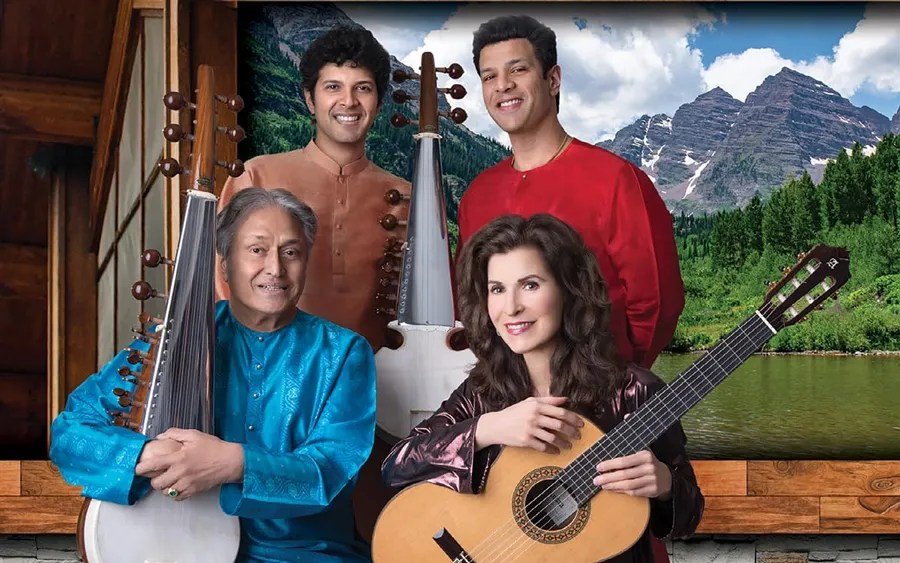Flaunt Weeekly
One of the most fascinating albums to come out in 2020 was Strings for Peacea collaboration between classical guitarist extraordinaire Sharon Isbin and Indian sarod master Amjad Ali Khan. Khan wrote four ragas with Isbin in mind, and he and Isbin were joined on a tour of India and their subsequent studio outing by Khan’s two talented sarod-playing sons, Amaan and Ayaan Ali Bangash, along with tabla dynamo Amit Kavthekar. Strings for Peace was a wonderful meeting of Eastern and Western stringed instrument virtuosos, with all players given plenty of space to express themselves both in formal written passages and through improvisations.
Improv is frankly not something I would have thought Isbin would necessarily excel at—it’s a skill rarely required by classical guitarists—but then she is one of the finest players on the planet and has shown herself to be comfortable working in almost any musical style and with a wide range of non-guitarists. North Indian classical music? No problem!
This thoroughly engrossing live set was recorded at the Aspen Music Festival in Colorado in August 2022—marking the 30th consecutive year that Isbin had performed there, but the first time with this ensemble. Three of the four ragas from Strings for Peace turn up on the live set (only the short “Love Avalanche” is missing), and though, of course, there are melodic and rhythmic touchstones and figures that are indelible parts of each piece, there are differences in the improvised portions, and I would say without equivocation that the Aspen versions feel more alive, more juiced (if you will), no doubt a function of the musicians being more comfortable with both the material and each other.
For those not familiar with the sarod, it is a fretless instrument, marginally lute-like, with multiple metal strings devoted to melody (four on Khan’s), drone (four), and sympathetic resonance (11). It is played with a plectrum, but a key characteristic of its sound is the constantly sliding notes (called meanor glisndi in Western music nomenclature) that the left hand creates as the fingers dart up and down a metallic fingerboard. The sarod is utterly distinctive and quite a sonic contrast with the clear and precise finger work Isbin employs on her many runs, playing an Antonius Müller double-top.
There are so many exciting passages where Isbin and whoever is wielding the sarod on a given track play in unison, or conversationally answer each other, or harmonize beautifully for brief moments. And on the concluding 15-minute raga, “Romancing Earth,” Khan and sons come together in a spectacular dialogue with Isbin and the tabla titan Kavthekar for a flight that will take your breath away. Just as impressive as the pyrotechnics, however, are the quieter, more meditative basis sections that introduce the longer ragas—I could listen to those all day!
It’s also worth mentioning that the album features four compositions that did not appear on Strings for Peace. Khan makes his first appearance on three shorter melodic solo pieces that were inspired by, respectively, the Indian god Ganesh, Indian classical vocal music, and Bengal folk music. And the album kicks off with Isbin solo, performing “Capricho árabe,” Francisco Tárrega’s gorgeous, Spanish- and Moorish-influenced classical guitar masterpiece—just in case you’ve forgotten Isbin’s musical roots. It, like everything on this album, feels just about perfect.








